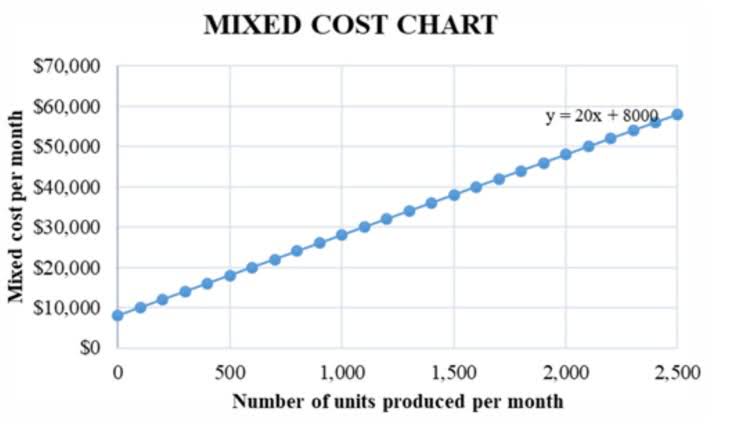
At the payment date of prepaid insurance, the net effect is zero on the balance sheet; and there is nothing to record in the income statement. However, after adjusting entry at the end of the period for the insurance expense, the asset account will decrease while the expense account will increase. Likewise, the adjusting entry at the end of the period is necessary for the company to recognize the cost that expires through the passage of time. In business accounting, it is essential to understand the nature of prepaid insurance because it directly affects financial statements, including the balance sheet and income statement. The way prepaid insurance is recorded can significantly impact a company’s reported financial health, as it is treated as a current asset until the insurance is used up over time.
Tax Treatment of Prepaid Expenses

In accounting it is perfectly acceptable to put money received into an expense account to offset (reduce) the original expense. When a business puts in an insurance claim to their provider for damages, the provider will pay money to help them cover the costs of repairing or replacing what was damaged (this is just one example). I have entered their figures into the free bookkeeping software called payroll Manager so you can see the insurance journal entry in action. If the business owner pays for their insurance with their own money, then nothing gets entered to the business bookkeeping records. The recommendation is to group this insurance with the other motor vehicle expenses (fuel, r&m) in the bookkeeping accounting records. An insurance expense occurs after a small business signs up with an insurance provider to receive protection cover.
- Instead of paying $2,000 each month, the company decides to make a prepayment on January 1st for the entire year, i.e., a lump-sum payment of $24,000.
- Any money you spend with a prepaid card is deducted from your card balance, not your bank account.
- This method aligns the cost with the periods that benefit from the payment, adhering to the matching principle.
- This translates to fivemonths of insurance that has not yet expired times $400 per month or five-sixthsof the $2,400 insurance premium cost.
- The payment is entered on November 20 with adebitof $2,400 to prepaid insurance and a credit of $2,400 to cash.
Insurance Expense Journal Entry
This blog covers the ins and outs of prepaid insurance, its importance, advantages, examples, ways of recording, calculations, and much more. If you use an expense account, the P&L will show a huge loss in one month (from the damage) and then a huge profit in the month that the insurance check is received. When payment is made, either in full or with monthly payments, the bill will decrease, which means the accounts payable account will decrease.

Types of Pre-Paid Expenses

For the past 52 years, Harold Averkamp (CPA, MBA) hasworked as an accounting supervisor, manager, consultant, university instructor, and innovator in teaching accounting online. For the past 52 years, Harold Averkamp (CPA, MBA) has worked as an accounting supervisor, manager, consultant, university instructor, and innovator in teaching accounting online. Virgil Wuckert is Grocery Store Accounting a seasoned writer with a keen eye for detail and a passion for storytelling.
Prepaid Insurance: Definition, How It Works, Benefits, And Example

When you pay upfront for services or goods you’ll use over time, recognize these expenses gradually. This aligns with accrual accounting, which records expenses when they’re incurred, not when cash changes hands. Prepaid rent refers to rent payments made in advance for the use of property.
- This is because prepaid insurance allows businesses to take advantage of a discount for paying the full year’s premium at once.
- For example, knowing that you have already paid for six months of rent allows you to allocate funds elsewhere without worrying about upcoming rental payments.
- Whether it’s rent, insurance, or subscriptions, managing prepaid expenses effectively will give you a clearer picture of your company’s financial health.
- However, paying for insurance in advance can often result in cost savings, as some insurers offer discounts for annual or semi-annual payments.
- But if a prepaid expense is not consumed within the year after payment, it becomes a long-term asset, which is not a very common occurrence.
- This could be monthly or quarterly depending on how often you have such transactions.
- As a result, you will get an immediate one-time deduction for the previously capitalized expenses that would have been deducted under your new method.
- Prepaid insurance refers to premiums for insurance that are paid in advance.
- This means that the expense is spread out, aligning with the period in which it provides benefits.
- Businesses must monitor prepaid insurance to maintain clear financial statements and budget accordingly.
- By keeping an eye on these accounts, you can catch any discrepancies early, make necessary adjustments, and ensure that expenses are recognized at the correct times.
- A company pays an insurance premium of $2,400 on November 20 for six months, with a debit of $2,400 to prepaid insurance and a credit of $2,400 to cash.
- This is because it allows for a more precise and steady record of expenses and consequently a more accurate representation of financial health.
The example is a bill of $1,000 for General Liability insurance and then two payments of $84. The above journal uses the Other Income account to show it is not part of the normal day to day activity income earned by the business. However, you can then reclaim a portion of that as a business expense when you calculate your deductible vehicle expenses based on the business use of your personal vehicle. This insurance can also be known as professional indemnity insurance and is suited for businesses providing a service. Plus, there are questions I received from real bookkeepers/business owners who needed to know how to enter their when a business pays for insurance prepaid insurance is insurance proceeds from property damage to which you can read my answers.

Understanding when these prepaid expenses will be recognized helps in managing your cash flow more effectively. For example, knowing that you have already paid for six months of rent allows you to allocate funds elsewhere without worrying about upcoming rental payments. This timely allocation ensures accurate financial reporting and reflects the true cost of insurance over the period it covers. Businesses must monitor prepaid insurance to maintain clear financial statements and budget accordingly.
